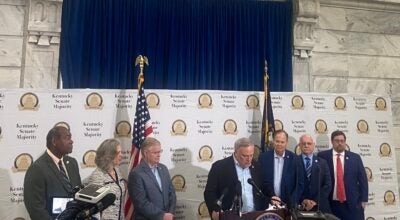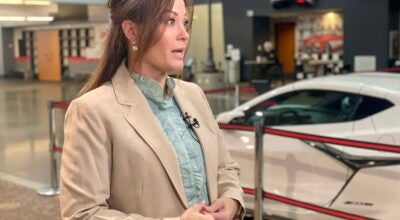United Methodist Church leader killed in carjacking
Published 10:13 pm Tuesday, July 19, 2022
Police took three people into custody Tuesday in the fatal shooting of a pastor and leader of the United Methodist Church during a carjacking in Memphis, Tennessee.
The Rev. Autura Eason-Williams was shot Monday afternoon outside of her home, the Tennessee-Western Kentucky Conference of the United Methodist Church said.
Eason-Williams was taken to a hospital, where she died, Memphis police said on Twitter. Police searched for three men who were in a four-door hatchback car.
At a news conference Tuesday, Memphis Police Director Cerelyn “CJ” Davis said three juveniles had been taken into custody as people of interest in what she called a “heinous killing.” Police were interviewing them, but it was not immediately clear if they would be charged.
The killing rocked the United Methodist Church community in Memphis. Church members attended a vigil for Eason-Williams on Monday night.
“We all are shocked and saddened by this senseless act,” the conference said in a statement.
Eason-Williams was a wife and the mother of four children, according to a biography posted on her website. She was superintendent of the conference’s Metro District.
She also was the pastor of Capleville United Methodist Church and a graduate of the Memphis Theological Seminary.
“Autura was a real light and a well of deep care,” seminary president Jody Hill said in a Facebook post.
Hill added that Eason-Williams would embrace people “with a warm smile, gentle hug, or encouraging word.”
Eason-Williams entered the ministry full-time in 1997 and has served under appointment in the United Methodist Church since 2002, according to her biography. She was commissioned Provisional Elder in 2003 and Ordained Elder in 2006, the biography said.
She led youth camps, retreats and women’s events, and she preached for local church, district, and conference events.
Eason-Williams also served on several boards and on planning committees that created My Sister’s Keeper — an outreach that addresses health disparities of African American women — and The Congregational Health Network — a network of 600 churches that address health disparities and build relationships between hospitals, the faith community, and neighborhoods, according to the biography.






